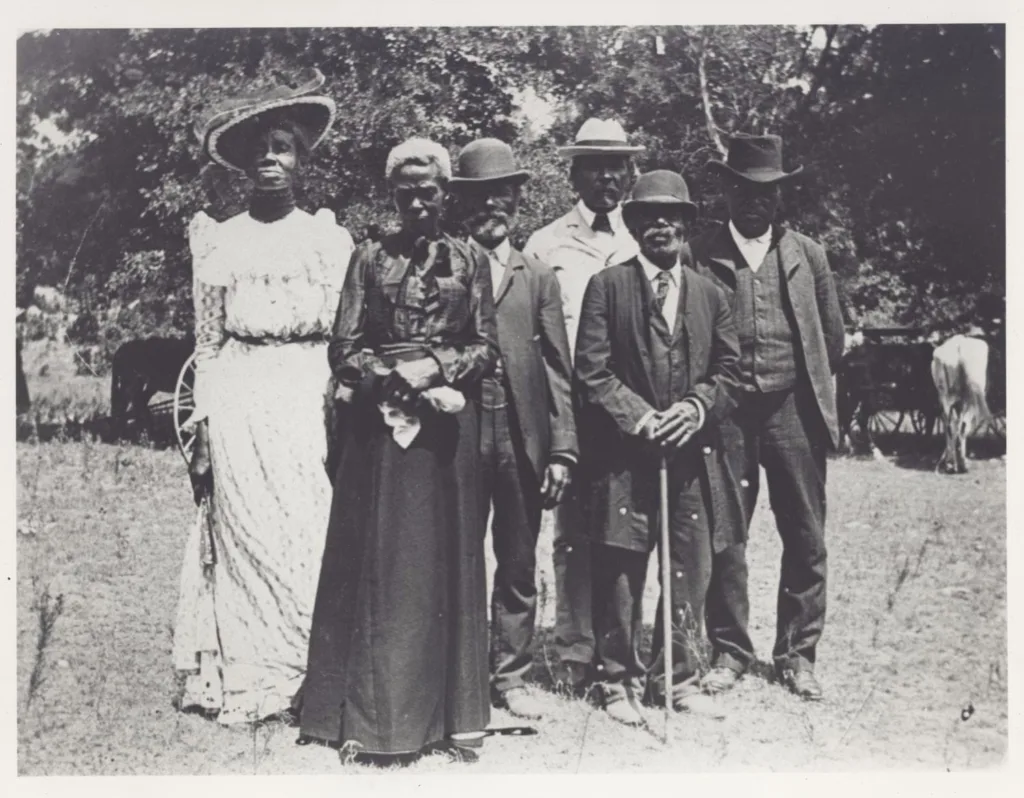Introduction
Juneteenth holds a significant place in American history as a commemoration of freedom and an opportunity to reflect on the struggles and resilience of African Americans. In this article, we will explore the rich tapestry of Juneteenth, its historical background, diverse celebrations, community engagement, and its relevance in today’s society.
Juneteenth: A Historical Perspective
A. History of Juneteenth
Juneteenth, also known as Freedom Day or Emancipation Day, marks the celebration of the emancipation of enslaved African Americans in the United States. On June 19, 1865, Union General Gordon Granger arrived in Galveston, Texas, with the news that the Civil War had ended and all slaves were to be freed.
On June 19, 1866, the “Juneteenth” holiday marked a joyous celebration of freedom for formerly enslaved individuals in Galveston, Texas
This pivotal moment in American history highlights the struggles endured by African Americans and the journey toward liberation.
B. Significance of Juneteenth as an Emancipation Celebration
Juneteenth serves as a powerful reminder of the hardships faced by enslaved individuals and their fight for freedom. It symbolizes the collective triumph over oppression and serves as a platform to honor the achievements and contributions of African Americans throughout history.

C. Juneteenth as a Symbol of African American Resilience and Freedom
Juneteenth represents the indomitable spirit and resilience of African Americans in the face of adversity. It stands as a testament to the enduring pursuit of freedom, justice, and equality for all. Juneteenth celebrates the triumph of the human spirit and serves as a catalyst for positive social change.
Celebrations and Traditions
A. Various Ways Juneteenth is Celebrated Nationwide
Juneteenth celebrations vary across different communities, encompassing a wide range of activities. From local gatherings to large-scale events, Juneteenth serves as a platform for education, cultural expression, and community engagement. These celebrations often feature music, dance performances, historical reenactments, storytelling, and cultural exhibitions.
B. Common Traditions Observed During Juneteenth Festivities
During Juneteenth, various traditions are upheld to honor the heritage and sacrifices of African Americans. These traditions may include the reading of the Emancipation Proclamation, soul food feasts, community picnics, prayer services, and the singing of spirituals. Family reunions and genealogy research are also prevalent, emphasizing the importance of ancestral connections.
C. Importance of Preserving and Passing on Juneteenth Traditions
Preserving Juneteenth traditions is vital for ensuring the continuity of African American heritage and fostering a sense of unity within communities. By passing on these traditions to younger generations, we can create a deeper understanding of history, instill pride, and inspire future leaders to champion social justice.
III. Juneteenth Events: Exploring Local Celebrations
A. Finding Juneteenth Events Near Your Location
Juneteenth events take place across the country, offering opportunities for individuals to participate and engage in their local communities. Local newspapers, community centers, social media platforms, and online event directories are valuable resources for finding Juneteenth events near your area.
B. Diversity Across Different Communities
Juneteenth events showcase the diversity and vibrancy of African American culture, reflecting the unique characteristics of each community. These events may include historical exhibitions, art shows, panel discussions, workshops, musical performances, and theatrical productions. The varied nature of Juneteenth celebrations provides a dynamic platform for education, cultural exchange, and community building.
C. Participation and Engagement Opportunities in Local Juneteenth Celebrations
Local Juneteenth celebrations often welcome volunteers, participants, and community members who wish to contribute to the event’s
success. Individuals can engage by volunteering at information booths, assisting with event logistics, performing cultural acts, or sharing personal stories related to Juneteenth. Active participation fosters a sense of belonging, promotes cultural appreciation, and strengthens community bonds.
IV. Juneteenth Parades and Festivals
A. Overview of Juneteenth Parades and Their Historical Significance
Juneteenth parades hold great historical and cultural significance, serving as vibrant spectacles that showcase African American pride and unity. These parades feature floats, marching bands, dance troupes, and community organizations. They commemorate the struggles of the past, celebrate achievements, and reinforce the importance of unity in the ongoing fight for social justice.
B. Festivals and Community Gatherings
Juneteenth festivals offer a diverse range of activities that engage and entertain attendees. These events often feature live music performances, arts and crafts vendors, food stalls serving traditional cuisine, historical exhibitions, and interactive workshops. Juneteenth festivals provide an immersive experience that celebrates African American heritage, fosters cultural exchange, and promotes unity among attendees.
C. Prominent Juneteenth Parades and Festivals Around the Country
Juneteenth parades and festivals are held in cities and towns nationwide, with some gaining prominence for their scale and historical significance. Examples include the annual Juneteenth Parade and Festival in Houston, Texas, which draws thousands of participants, and the Emancipation Park Juneteenth Celebration in Austin, Texas, known for its cultural performances and educational activities. These events serve as beacons of the Juneteenth celebration, attracting people from all walks of life to honor the past and embrace a more inclusive future.
V. Juneteenth: Connecting Through Activities and Engagement
A. Engaging in Activities that Promote Unity and Understanding
Juneteenth offers a plethora of activities that encourage dialogue, empathy, and understanding among diverse communities. Workshops and discussion panels provide platforms for individuals to explore the historical and social significance of Juneteenth, fostering a deeper appreciation for the struggles faced by African Americans. These activities promote unity by bridging cultural divides and promoting an inclusive society.
B. Educational Workshops and Lectures
Educational workshops and lectures held during Juneteenth serve as valuable resources for individuals seeking to expand their knowledge and understanding of African American history and culture. These events may cover topics such as the abolitionist movement, civil rights activism, African American art, literature, and influential figures in history. By engaging in these educational opportunities, participants can gain a deeper understanding of the experiences and contributions of African Americans.
C. Volunteering Opportunities to Support Juneteenth Initiatives
Volunteering during Juneteenth events provides individuals with an avenue to actively contribute to the celebration and empowerment of African American communities. Volunteer roles may include event coordination, assisting with set-up and clean-up, supporting educational activities, or providing logistical support. By volunteering, individuals can actively participate in fostering a sense of community, helping to create memorable experiences for all attendees.
VI. Exploring Juneteenth: Arts, Culture, and Expression
A. Artistic Expressions
Artistic expressions play a significant role in Juneteenth celebrations, showcasing the creative talents of African American artists and their contributions to society. From visual arts to performing arts, Juneteenth provides a platform for artists to express their experiences, struggles, and triumphs. Art exhibitions, galleries, and live performances serve as powerful mediums to commemorate the past and inspire future generations.
B. Role of Music, Dance, and Spoken Word in Juneteenth Festivities
Music, dance, and spoken word performances are integral components of Juneteenth festivities, reflecting the cultural richness and diversity of African American heritage. Soulful melodies, rhythmic dances, and powerful spoken word pieces evoke emotions and tell stories that resonate with audiences. These performances honor African American contributions to the arts and serve as a means of cultural preservation and expression.
C. Visual Arts, Exhibitions, and Cultural Performances Associated with Juneteenth
Juneteenth provides opportunities for artists to showcase their work through visual art exhibitions and cultural performances. Artistic expressions may include paintings, sculptures, photography, and installations that highlight themes of freedom, resilience, and social justice. These exhibitions foster dialogue, challenge perspectives, and celebrate the artistic achievements of African Americans, enriching the overall Juneteenth experience.
VII. Juneteenth Literature and Media
A. Recommended Books, Articles, and Essays on Juneteenth
A vast array of literature exists that delves into the history, significance, and cultural impact of Juneteenth. Books such as “Juneteenth: A Novel” by Ralph Ellison and “On Juneteenth” by Annette Gordon-Reed provide thought-provoking insights into the holiday’s historical and societal context. Additionally, a multitude of articles and essays discuss the historical events leading up to Juneteenth and the ongoing importance of the celebration in contemporary society.
B. Films and Documentaries That Delve into the History and Significance of Juneteenth
Films and documentaries have the power to educate, inform, and inspire. Documentaries such as “Juneteenth: A Celebration of Freedom” and “The Black Power Mixtape 1967-1975” shed light on the struggles faced by African Americans and the significance of Juneteenth in the context of
civil rights movements. Fictional films like “Miss Juneteenth” and “The Great Debaters” explore themes of identity, empowerment, and resilience, showcasing the cultural impact of Juneteenth.
VIII. Juneteenth and Community Engagement
A. Community Events and Collaborations on Juneteenth
Juneteenth serves as a catalyst for community engagement, fostering collaboration and partnership among individuals, organizations, and local businesses. Community events such as block parties, cookouts, and neighborhood gatherings create spaces for people to connect, share stories, and build relationships. These events promote a sense of unity, belonging, and social cohesion within communities. The food most affiliated with Emancipation Day is cold strawberry soda!
B. Supporting Local Businesses and Entrepreneurs on Juneteenth
Juneteenth offers an opportunity to support and uplift local businesses owned by African Americans. By actively patronizing these businesses during Juneteenth celebrations, individuals can contribute to economic empowerment and promote the growth of the community. Supporting local entrepreneurs helps foster economic equity, diversity, and sustainable development within neighborhoods.
C. Collaborative Initiatives and Partnerships for Social Justice on Juneteenth
Juneteenth provides a platform for collaborative initiatives and partnerships aimed at advancing social justice causes. Organizations and community groups often join forces during this time to address systemic inequalities, promote racial equity, and advocate for positive change. These collaborative efforts leverage the collective power of diverse voices and create a lasting impact on communities.
IX. Juneteenth: Looking Towards the Future
A. Reflections on the Progress Made Since Juneteenth
Since the first Juneteenth celebration, significant progress has been made in the fight for racial equality and justice. However, it is crucial to acknowledge that there is still work to be done. Juneteenth serves as a reminder to reflect on the progress made and to renew our commitment to creating a more inclusive and equitable society.
B. The Role of Juneteenth in Contemporary Social Movements
Juneteenth holds relevance in contemporary social movements, amplifying the voices of those fighting against racial injustice. The holiday serves as a call to action, inspiring individuals to participate in grassroots activism, engage in dialogue, and advocate for meaningful change. Juneteenth provides an opportunity to unite communities and support ongoing efforts for equality and justice.
C. Future Outlook: The Evolution of Juneteenth Celebrations
As society continues to evolve, so too will the ways in which Juneteenth is celebrated. It is important to embrace new ideas, perspectives, and innovative approaches to ensure the holiday remains relevant and impactful. Juneteenth celebrations may incorporate emerging technologies, digital platforms, and global collaborations, fostering greater inclusivity and expanding the reach of the holiday.
Conclusion
Juneteenth stands as a powerful commemoration of freedom, resilience, and the ongoing struggle for racial equality. The diverse range of celebrations, traditions, and community engagement surrounding Juneteenth provide opportunities for education, reflection, and empowerment. By actively participating in Juneteenth events, supporting local initiatives, and fostering dialogue, we can honor the past, celebrate the present, and work together to create a more just and inclusive future.







